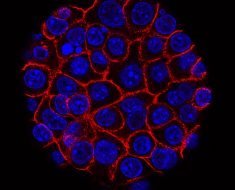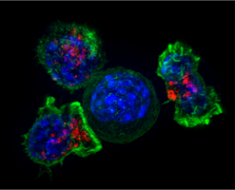
(HealthDay)—A gene expression signature can identify T-cell mediated rejection (TCMR) ahead of time in kidney transplant recipients, according to a study published online March 1 in EBioMedicine.
Sofia Christakoudi, Ph.D., from King’s College London, and colleagues examined real-time quantitative polymerase chain reaction expression of 22 genes in peripheral blood samples from 248 patients in the Kidney Allograft Immune Biomarkers of Rejection Episodes study. Time-adjusted gene expression residuals were generated from linear mixed-effects models in stable patients. Penalized logistic regression based on 27 stable patients and 27 rejectors with biopsy-proven TCMR was used to select genes.
The researchers found that a parsimonious TCMR-signature showed a cross-validated area under the receiver operating characteristic curve of 0.84, with sensitivity and specificity of 0.67 and 0.85, respectively. Seven weeks prior to the diagnostic biopsy, there was an increase in the estimated probability of TCMR, which decreased after treatment. Pronounced variability was seen in gene expression in all patients; up to 24 percent of the longitudinal samples in stable patients were TCMR-signature positive. Up to 40 percent of prebiopsy samples were TCMR-signature positive in patients with borderline changes.
“Further evaluation will be needed to fully validate the technique is reliable enough for clinical use, and it will be exciting to develop this research further,” a coauthor said in a statement.
Source: Read Full Article





